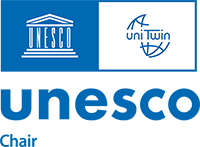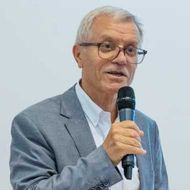- A
- A
- A
- ABC
- ABC
- ABC
- А
- А
- А
- А
- А
- HSE University
- UNESCO Chair on Future Studies
- News
- HSE Foresight Centre's Work Praised by United Nations
-
-
Education
-
Science
11 Myasnitskaya St., Moscow
+7 (495) 621-28-73
issek@hse.ru
Meissner D., Zhou Y., Fischer B. et al.
Technological Forecasting and Social Change. 2022. Vol. 178.
Abdrakhmanova G., Vasilkovsky S., Vishnevskiy K. et al.
M.: National Research University Higher School of Economics, 2022.
Saritas O., Burmaoglu S., Ozdemir D.
Futures. 2022. Vol. 137.
Sokolov A., Shashnov S. A., Kotsemir M. N.
In bk.: BRICS Comprehensive Innovation Competitiveness Report 2020. Scientific and technical documentation press, 2021. P. 36-98.

HSE Foresight Centre's Work Praised by United Nations

The HSE Foresight Centre has been featured in a report by the United Nations Secretary-General as a successful example of a centralised approach to technology foresight. The document was prepared for the twenty-eighth session of the Commission on Science and Technology for Development, which is the United Nations’ focal point for technology foresight and technology assessment.
The report of the Secretary-General highlights the role of technology foresight and technology assessment in shaping sustainable development policies, drawing on international case studies. It was prepared for the twenty-eighth session of the Commission on Science and Technology for Development (CSTD), which will be held from April 7 to April 11, 2025, at the Palais des Nations in Geneva, Switzerland. The session will discuss technology foresight and technology assessment for sustainable development, acting as a forum for sharing best practices and providing foresight about critical trends in science, technology, and innovation in key sectors of the economy, environment, and society, as well as drawing attention to potential impacts and risks of emerging and disruptive technologies.
The report of the Secretary-General emphasises that technology foresight and technology assessment can guide sustainable development policies. These two practices complement each other in helping countries strengthen anticipatory governance capacities and proactively adjust technological trajectories. Together, they help foster resilience by enhancing adaptability to unforeseen technological changes, creating shared goals that unite diverse stakeholders, and challenging existing policy narratives by helping reveal blind spots, debunk biases, and identify missed opportunities and risks.
It is underscored in the report that technology foresight and technology assessment can act as honest brokers, expanding the range of policy options rather than promoting a single course of action.

The report provides recommendations on institutionalising technology foresight and technology assessment, ensuring the independence and inclusivity of such activities and strengthening global support and knowledge-sharing networks, to ultimately embed them more firmly into sustainable development policies.
The report points out that building local capacities is particularly critical in developing countries, although it is neither easy nor inexpensive. Key challenges include limited human and financial resources, insufficient institutional capacity, and the lack of integration between exercise results and policymaking processes.
The report commends the activities of the HSE Foresight Centre, stating, 'The Russian Federation has a technology foresight hub model, through the International Research and Educational Foresight Centre of the Higher School of Economics, which serves as a central hub for developing foresight methodologies and conducting futures studies. The Centre collaborates with international organisations and research centres, contributing to the global foresight community. Its work includes producing long-term foresight studies and road maps for various sectors; assisting in the formulation and revision of the government strategy on priority science and technology areas and critical technologies; and supporting the foresight activities of the business sector. Beyond these contributions, the Centre offers foresight training, fostering a new generation of foresight practitioners.'

Alexander Sokolov
This is a significant recognition of the Centre's activities at the international level, according to Alexander Sokolov, Director of the Foresight Centre. 'We have been involved in technology foresight for many years, contributing to the development of proposals for critical technology lists of the Russian Federation, approved by Presidential Decrees. We have published several large-scale, long-term foresight reports on the country's scientific and technological development and have developed over a hundred foresight studies and technology roadmaps for various industries, major companies, banks, regions, and universities,' he said.
Alexander Sokolov also noted that the Institute of Statistical Research and Economics of Knowledge has a comprehensive ecosystem for foresight studies. It includes a master's programme with instruction in English, an open optional course on foresight methodologies and organisation, the Foresight and STI Governance (Scopus Q1) peer-reviewed journal, and a series of books published by Springer Nature. The Institute has developed iFORA, a unique big data mining system that significantly enhances the quality of foresight studies. More than 20 ISSEK research fellows hold certificates from top international foresight courses offered by institutions such as the Universities of Manchester and Oxford, EDHEC Business School, UNIDO, the APEC Centre for Technological Foresight, and others. The Foresight Centre is making a significant contribution to the implementation of the Strategic Project 'National Centre of Science, Technology and Socio-Economic Foresight' at HSE University as part of the 'Priority 2030' programme. This Strategic Project involves over a dozen leading faculties and research divisions of HSE University in exploring potential development scenarios for the Russian Federation.
Alexander Sokolov added that the Centre has also been involved in collaborative foresight projects with colleagues from other countries. In particular, active collaboration has been established with the BRICS countries. In addition to its annual academic conference on foresight in science and technology, this year, the Centre is assisting its Brazilian colleagues in organising a similar conference as part of Brazil's BRICS Chairmanship. Several major events have been organised within the framework of UNESCO's forums. 'The report of the United Nations Secretary-General highlights, in particular, the Foresight Centre's contribution to the development of science and technology foresight commissioned by the Government of South Africa, where we applied several new methods based on AI technologies integrated into the iFORA system. This foresight informed South Africa's Ten-Year Innovation Plan. Incidentally, Springer Nature recently published our book presenting this project,' said Sokolov.
The Foresight Centre was established in 2006 as part of HSE University's Innovative Educational Programme, functioning as a structural subdivision of the Institute for Statistical Studies and Economics of Knowledge. Its creation was driven by the growing interest in medium- and long-term forecasting of economic and social development using the foresight methodology. The Centre focuses on developing foresight methodologies and conducting futures studies. Its work includes producing long-term foresight studies and roadmaps for various sectors; assisting in the formulation and revision of the government strategy on priority science and technology areas and critical technologies; and supporting the foresight activities of the business sector. Beyond these contributions, the Centre offers foresight training, fostering a new generation of foresight practitioners.
The UNESCO Chair on Future Studies was established at the HSE International Research and Educational Foresight Centre in 2021. For several years, the UNESCO Chair has actively contributed to shaping long-term national development strategies by developing and implementing foresight tools that help government agencies and commercial companies proactively respond to future challenges and opportunities.
- About
- About
- Key Figures & Facts
- Sustainability at HSE University
- Faculties & Departments
- International Partnerships
- Faculty & Staff
- HSE Buildings
- HSE University for Persons with Disabilities
- Public Enquiries
- Studies
- Admissions
- Programme Catalogue
- Undergraduate
- Graduate
- Exchange Programmes
- Summer Schools
- Semester in Moscow
- Business Internship
- © HSE University 1993–2025 Contacts Copyright Privacy Policy Site Map
- Edit

